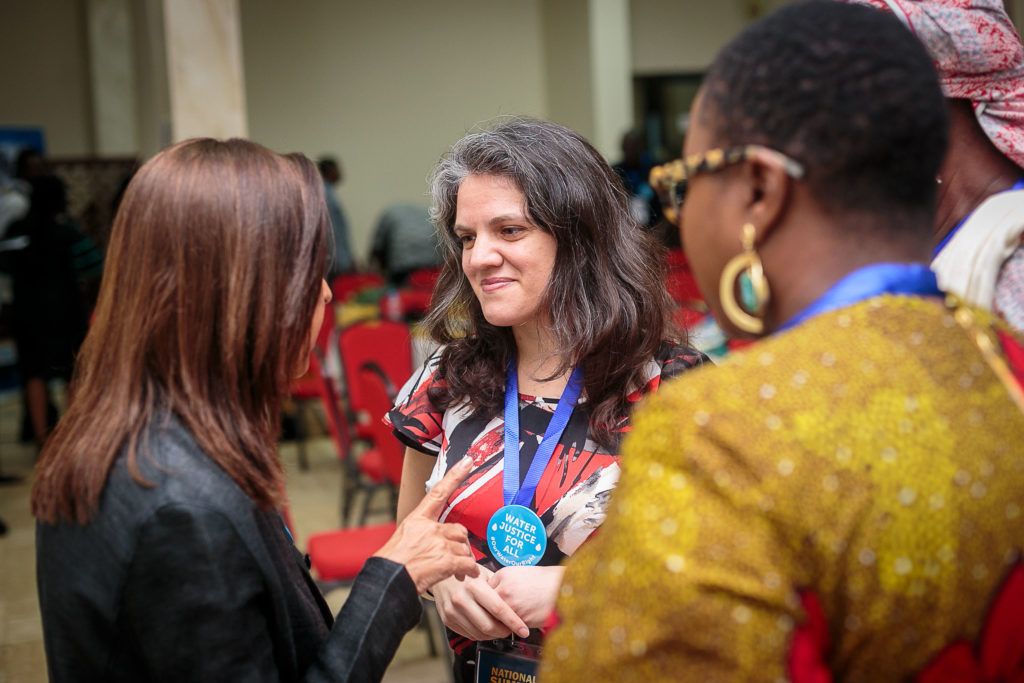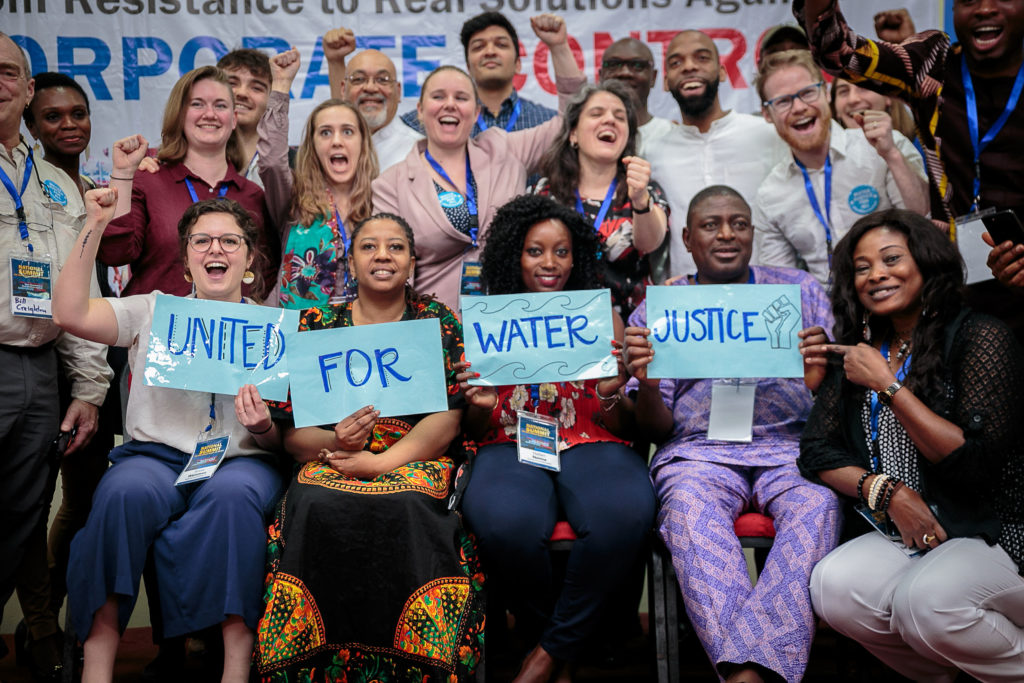
“This is the most successful campaign I’ve been involved with in more than 30 years of my organizing career,” said Akinbode Oluwafemi (Bode), deputy executive director of Environmental Rights Action/Friends of the Earth Nigeria (ERA).
We were sitting together at breakfast day one of the National Summit on the Human Right to Water in Abuja, Nigeria. The hotel conference room was teeming with water justice organizers, workers, and experts from all over Nigeria and around the world — from Nagpur, India, to the U.S., to Amsterdam.
The campaign that Bode was referring to — the Our Water, Our Right campaign in Lagos, Nigeria — has set a precedent for the movement to advance the human right to water. Now in its fourth year, the campaign has brought together thousands of people across Lagos to demand public water solutions for Africa’s largest city — and to stop the exploitation and commodification of water by transnational corporations like Veolia and their backers like the World Bank.
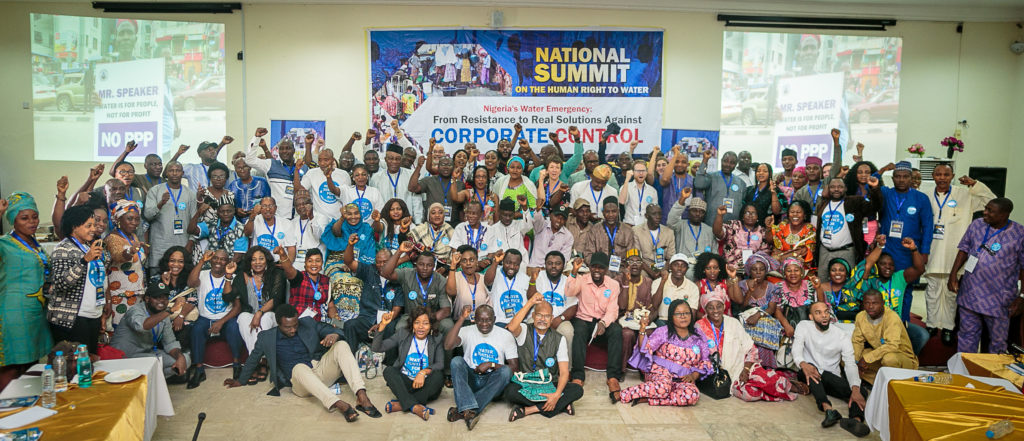
More than 150 organizers and experts from across the water justice movement — from Flint, Pittsburgh, and Boston, USA to Nagpur, India to South Africa and Cameroon attended the summit in Nigeria. Together, we’re advancing the human right to water globally.
Bode knows what a successful campaign looks like thanks to his long career as a social change-maker. He was part of the democracy movement that successfully ended Nigeria’s military dictatorship. He and ERA have taken on Shell and gone to-to-toe with Big Tobacco. And, in partnership with Corporate Accountability and other allies, for more than four years, he and ERA have successfully stopped transnational water corporations from privatizing Lagos’ water. This is no small feat: Lagos is the largest city on the African continent. And, as Lagos is seen as a trendsetter for Nigeria and the rest of Africa, if its water was privatized it could have the potential to open the doors for water privatizers across the continent. The Our Water, Our Right campaign has been a flashpoint in the water justice movement and holds the line against water privatizers.
That’s why we came together with ERA and more than 150 water justice campaigners, policy experts, allied organizations, grassroots activists, and government officials from all over the world to harness our momentum. Together, we made connections between powerful campaigns around the world from Ghana to Lebanon; shared expertise; and developed strategic plans not only for stopping water privatization in Lagos, but also for scaling up this campaign model throughout Nigeria and beyond.
The message resounds from TV screens to the halls of US Congress
The summit was covered in every major news outlet in Nigeria — reaching over 18 million people. Headlines like “World Bank PPP on water is new colonialism” in the Vanguard, one of Nigeria’s most widely read newspapers, and “Nigeria, others urged to reject World Bank water scheme,” in AllAfrica, an outlet with readership across the African continent, made it clear that the movement for water justice in Nigeria is growing stronger than ever.
We were also featured on Arise News, a highly watched international news outlet with a strong focus on Africa, discussing the impacts of water privatization. (You can catch us at the three-minute mark.)
Members of U.S. Congress, recognizing the importance of connecting global water struggles, weighed in: Reps. Gwen Moore and Raúl Grijalva sent video messages voicing support and solidarity with the Our Water, Our Right movement.
Rep. Moore and Rep. Grijalva – Our Water Our Right from Corporate Accountability on Vimeo.
A tipping point years in the making
We spent months organizing the jam-packed, two-day event alongside the ERA team. But more than that, this summit marked a tipping point in the four-years-strong campaign to push back against water privatization and advance public water solutions in Lagos.
The World Bank and water privatizers like Veolia have long looked at Lagos and seen dollar signs: Privatizing water in Lagos — the largest city in Africa, with more than 21 million residents, could open the door for privatization across the rest of the continent.
For the past four years, ERA and Corporate Accountability’s campaign, in partnership with the African Woman Water Sanitation and Hygiene Network (AWWASHNet), a women-led organization that focuses on the gender inequality rooted in water access; and the Amalgamated Union of Public Corporations, Civil Service Technical and Recreational Services Employees; and other partners has held the line against water privatizers. We moved the World Bank to walk away from an advisory contract to set up privatization in Lagos. We’ve secured hard-hitting media coverage across the world, including an article in BuzzFeed News that chronicles Veolia’s abuses around the world and reached millions of people. When the Lagos government attempted to advance five water privatization contracts, we mobilized grassroots pressure and international outcry, from media to members of the U.S. Congress, and stopped the projects short.
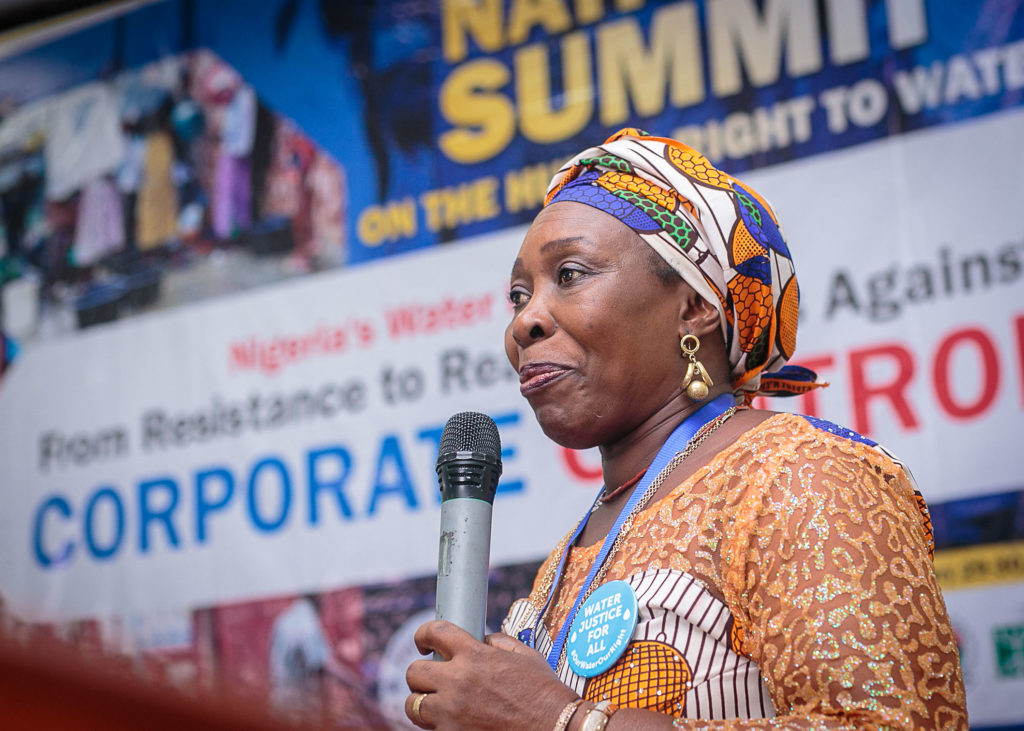
AWWASHNET, a network of women advancing the right to water across Africa, was launched during the last summit we held in Lagos in 2015. Vickie Uremma, AWWASHNET chairperson, spoke to how the campaign began and the challenges faced by women in local communities in getting potable water.
The strength of the movement, like the threat of privatization, extends far beyond Lagos. That’s why it was so powerful to connect the dots between the struggle for water justice in Nigeria and other places around the world. We heard from folks like Gina Luster, a mother in Flint, Michigan. Flint residents were poisoned by a fully avoidable lead crisis and Gina’s activism to secure justice for the city’s residents helped make Flint a national flashpoint for the human right to water. And Aly Shaw, an environmental justice organizer at Pittsburgh United, a coalition organizing to hold transnational privatizer Veolia accountable for its role in that city’s lead crisis. Jammu Anand, president of the Nagpur Municipal Corporation Employees Union, shared his experience fighting a disasterious Veolia contract in Nagpur, India. Together, folks like Aly, Gina, Jammu, Bode,and Veronica Ivoke are making sure the water justice movement in Nigeria and beyond is more coordinated and powerful than ever.
As we gathered on the final day of the summit, it was clear that the campaign is only growing in strength and in numbers. From here, we’ll chart the course forward for our campaign in Lagos for a public water system that delivers safe water for all residents at rates they can afford. And we’ll use the power we’ve built to grow the campaign beyond Lagos and to open the door to many future collective victories around the world.
Check out photo highlights from the summit below. And help us keep up the momentum: Sign this letter to show your solidarity with activists in Lagos and send a message to the World Bank, private water corporations, and elected officials who do their bidding.
All photos courtesy of Babawale Obayanju, Environmental Rights Action, Friends of the Earth Nigeria.
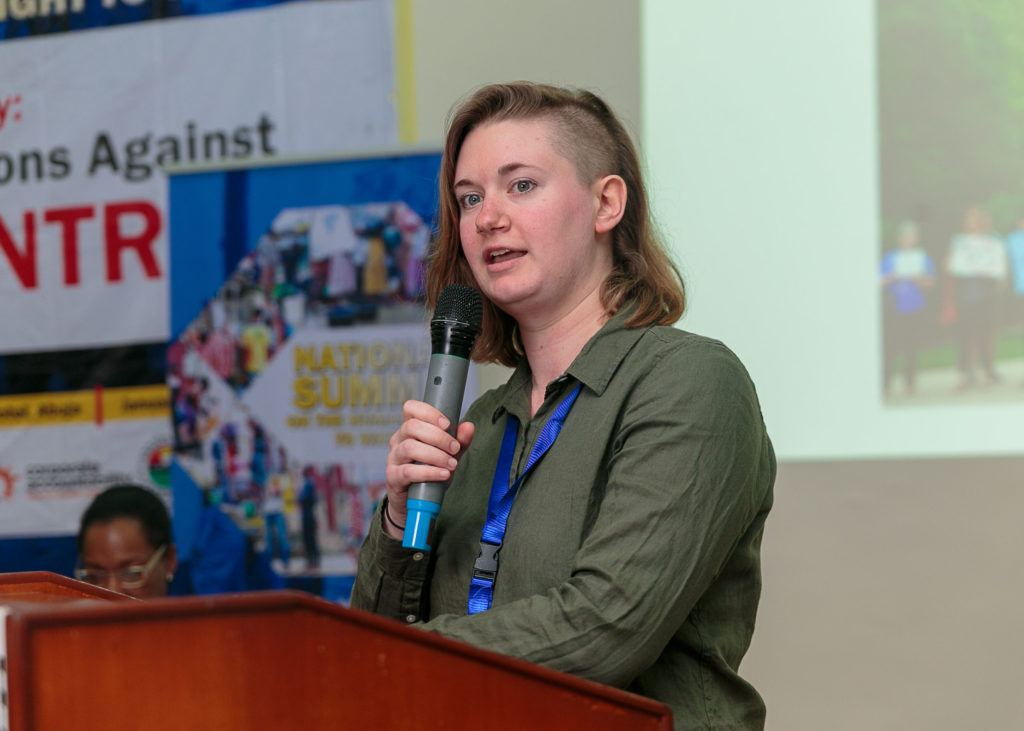
Aly Shaw, environmental justice organizer at Pittsburgh United, shared the root causes and devastating impact of Pittsburgh’s lead crisis and the growing grassroots movement to hold water privatizer Veolia accountable for its role in the crisis.
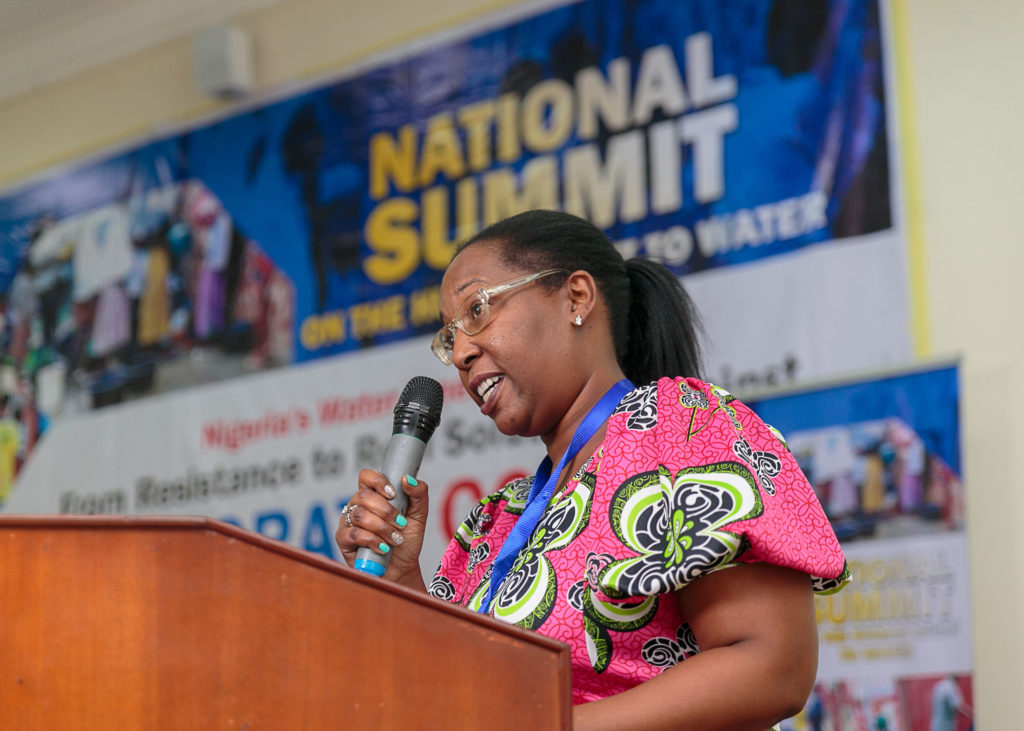
Gina Luster, a mother and activist with Flint Rising from Flint, Michigan, warned of the life-threatening impacts of the loss of community control over our water. She spoke to the perils of contracting with corporations like Veolia, which gave Flint’s water a clean bill of health months into the city’s lead crisis.
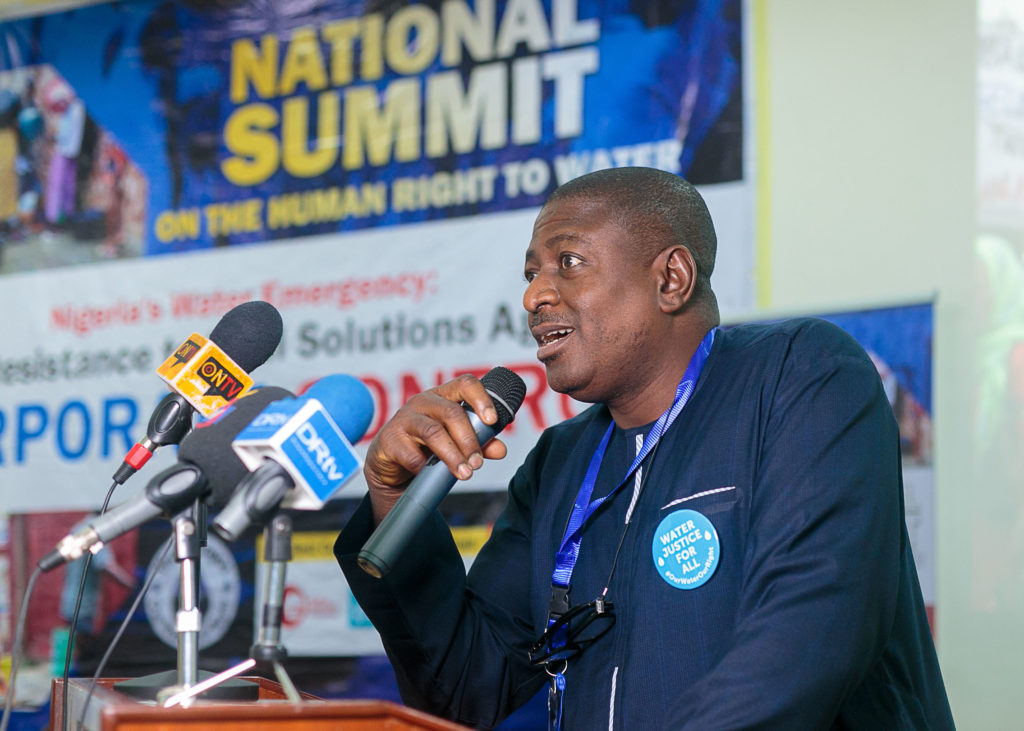
Bode Oluwafemi, ERA’s deputy executive director, addresses the crowd at the National Water Summit in Abuja, Nigeria, which brought together people from around the world to chart a path forward for the human right to water, free from corporate control.
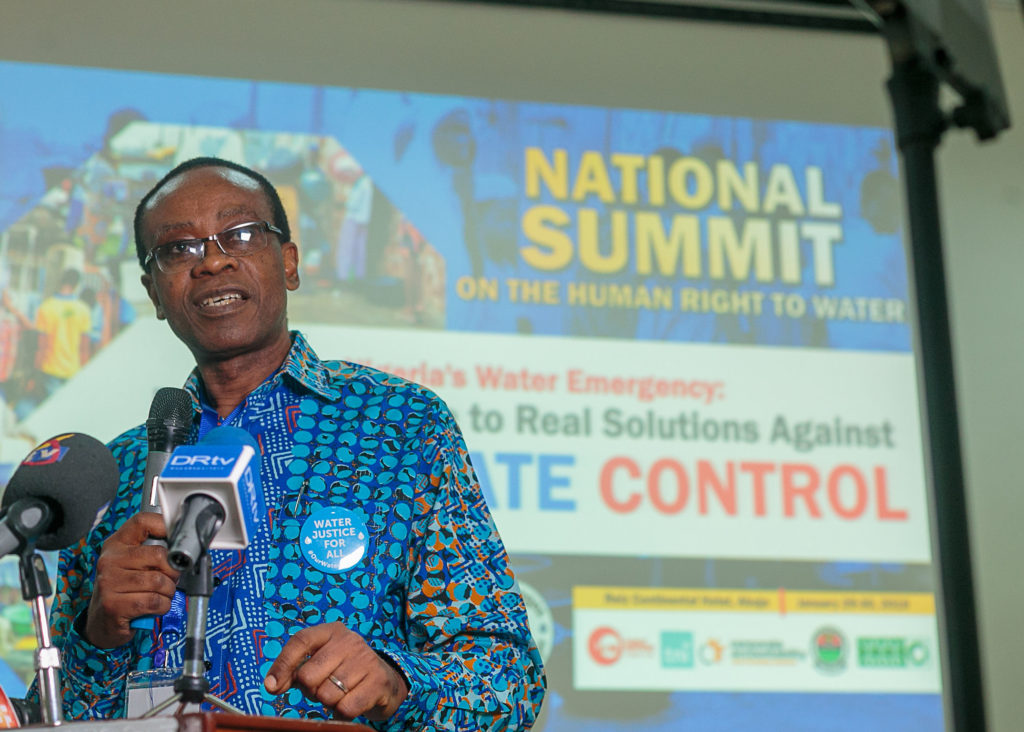
Nnimmo Bassey, ERA’s board chair and a leader in the environmental movement in Nigeria, gave the opening address at the National Water Summit.
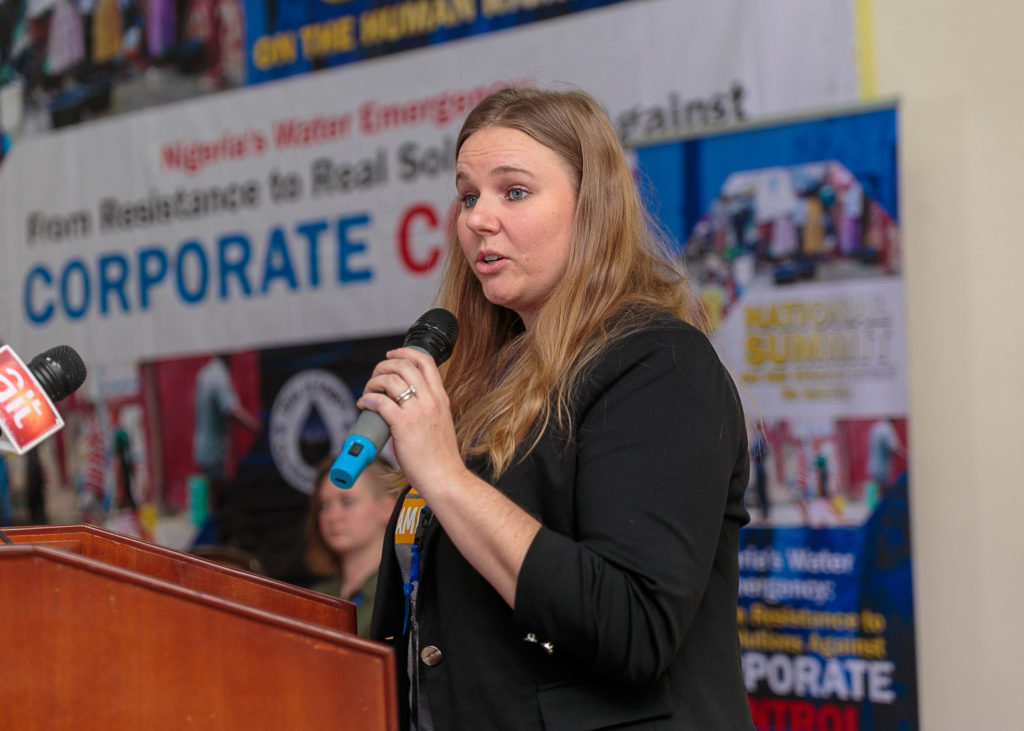
Lauren DeRusha Florez, Corporate Accountability campaign director, discusses the history, trends, and drivers of water privatization.
